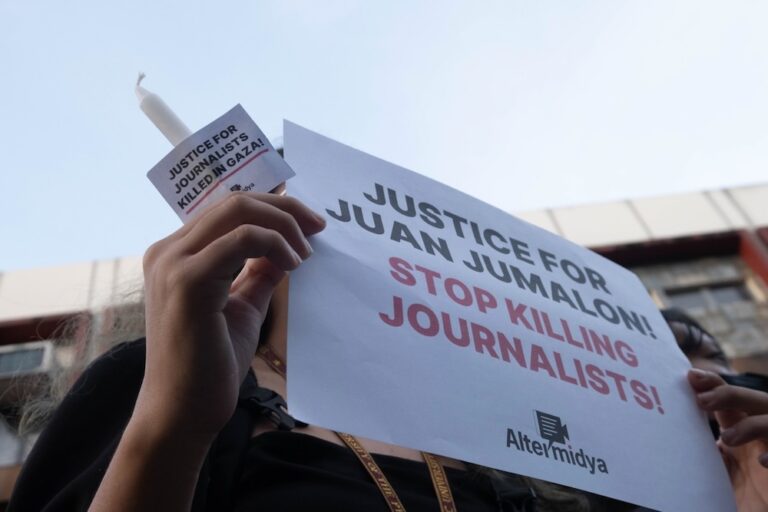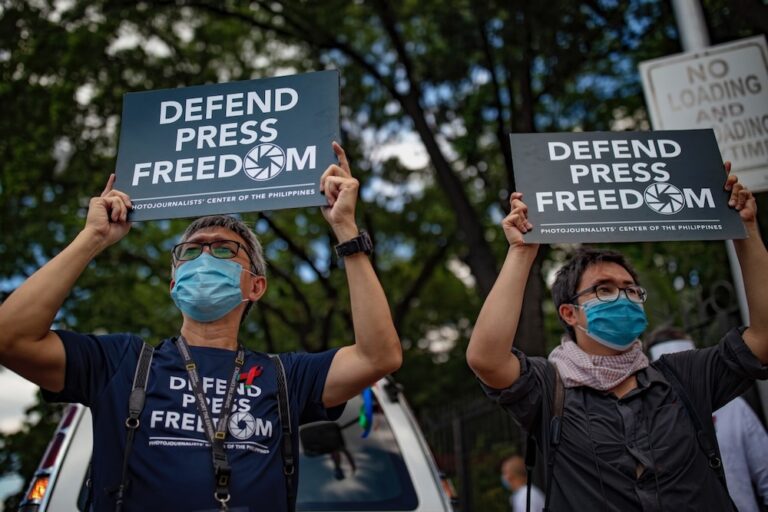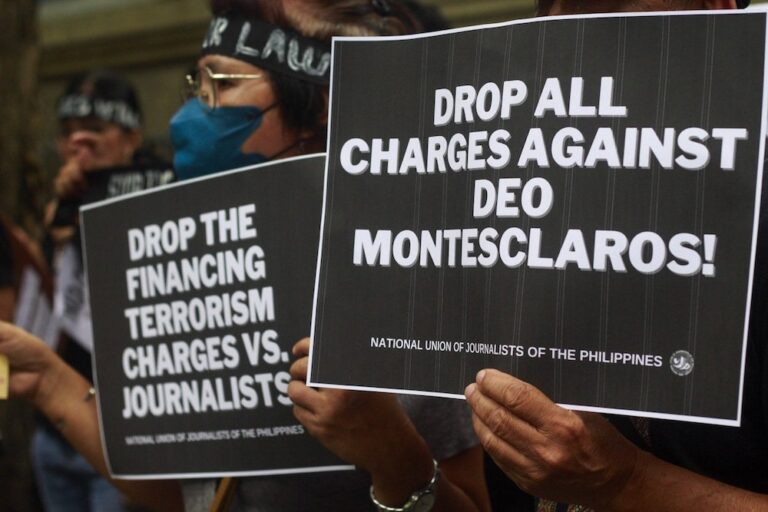(CMFR/IFEX) – The Supreme Court (SC) has ruled that threatening statements from the Justice Secretary and the National Telecommunications Commission (NTC) warning media not to air a wiretapped conversation between President Gloria Macapagal Arroyo and an elections commissioner constituted “impermissible forms of prior restraints on the right to free speech and press.” The 38-page decision, […]
(CMFR/IFEX) – The Supreme Court (SC) has ruled that threatening statements from the Justice Secretary and the National Telecommunications Commission (NTC) warning media not to air a wiretapped conversation between President Gloria Macapagal Arroyo and an elections commissioner constituted “impermissible forms of prior restraints on the right to free speech and press.”
The 38-page decision, written by SC Chief Justice Reynato Puno on 15 February 2008, “nullif(ied) the official statements made by respondents on June 8, and 11, 2005 warning the media on airing the alleged wiretapped conversation between the President and other personalities, for constituting unconstitutional prior restraint on the exercise of freedom of speech and of the press.”
“Issues revolving on their construct must be decided on a case to case basis, always based on the peculiar shapes and shadows of each case. But in cases where the challenged acts are patent invasions of a constitutionally protected right, we should be swift in striking them down as nullities per se. A blow too soon struck for press freedom is preferred than a blow too late,” the decision said.
On 2005, allegedly wiretapped mobile phone conversations between Arroyo and former Commission on Elections Commissioner Virgilo Garcillano were circulated on the Internet and through CDs. The conversations, which discussed the alleged rigging of the 2004 presidential elections in favour of Arroyo, also involved the alleged voices of other high-ranking government officials. The wiretapped conversations were then known as the “Hello, Garci tapes,” in reference to Arroyo’s initial address to Garcillano at the beginning of the conversation.
Shortly after the tapes were circulated, Justice Secretary Raul Gonzalez warned reporters that they could be held liable under the Anti-Wiretapping Act if they are found in possession of the tapes or if they air its contents. Gonzalez said that anybody in possession of the tapes could be arrested. Gonzalez also ordered the National Bureau of Investigation to investigate media organizations believed to have distributed, played, or printed the contents of the tapes.
The National Telecommunications Commission, the government body tasked to regulate the airwaves, subsequently issued a press release stating that “NTC gives fair warning to radio and television owners/operators to observe the anti-wiretapping law and pertinent circulars on program standards.”
Lawyer Francisco Chavez, former solicitor general, filed a suit asking the court to issue a temporary restraining order to prohibit Gonzalez and the NTC from further making similar statements and orders that may infringe on the public’s right to know.
The decision by the High Tribunal also said that “the Court should not be misinterpreted as devaluing violations of law. By all means, violations of law should be vigorously prosecuted by the State for they breed their own evil consequence.”
The SC said, however, that “the need to prevent their violation cannot per se trump the exercise of free speech and free press, a preferred right whose breach can lead to greater evils.”
“For this failure of the respondents alone to offer proof to satisfy the clear and present danger test, the Court has no option but to uphold the exercise of free speech and free press. There is no showing that the feared violation of the anti-wiretapping law clearly endangers the security of the state,” the decision stated.
The decision also closely examined the law on freedom of speech, of expression and of the press, as well as content-neutral and content-based regulations.
Chief presidential legal counsel Sergio Apostol downplayed the landmark resolution and said that the decision by the Supreme Court, also known as the court of last resort, was not yet final.
The full text of the decision, along with the concurring and dissenting opinions of the justices, can be accessed at the Supreme Court website: http://www.supremecourt.gov.ph/jurisprudence/2008/feb2008/168338_index.htm


